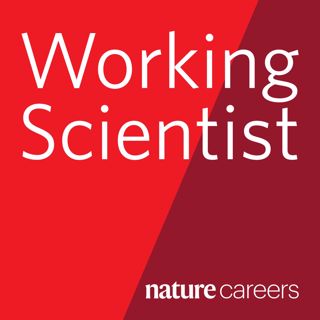Jaksokuvaus
Do researchers and frontline clinicians have a moral obligation to communicate science around the coronavirus?In the second episode of this six-part Working Scientist podcast series about science communication, Pakinam Amer explores crisis communication and asks how well researchers have explained the underlying uncertainties to the public.Epidemiologist Sandro Galea, dean of Boston University's school of public health, says academic researchers have three roles, to generate scholarship and science, to teach that science to students, and to clearly translate it for a general audience.“Our job is to help the world see how we can bridge the science to the very real practical decisions that the world has to make to create a healthier world,” he says.But how is science communication evolving during the pandemic? “We are entering a new era. We need a new playbook for communicating science in a time of uncertainty, and how policy can be informed by uncertain science. We have not done that well,” he tells her.“There has been this mismatch between what we do not know and our capacity to communicate what we do not know, and to inform policy that needs to be made anyway. Those have been glaring gaps in my assessment.”Ron Daniels, a critical care consultant at University Hospitals Birmingham NHS Foundation Trust, sees a role for scientists to plug knowledge gaps alongside the understandably “cautious and risk-averse" messages that often emanate from government and professional bodies.Daniels produced a short video in response to calls to explain why COVID-19 patients are ventilated on their stomachs, using a simple drawing on a white paper board to explain the underlying physiology.“People want to make sensible informed decisions. With a very filtered and controlled flow of information coming from government, which is designed to avoid panic and instil calm, making informed decisions can be challenging.“This is not about profile, this is not about gaining followers or scoring points. Usually this should not be about academic argument. This should be around 'I've appraised the evidence, I have a level of expertise, here are my opinions and this is what I think you as a member of the public should do with that information.'”What about journalists reporting on the pandemic and busting myths and misinformation? How does their communication role differ from scientists and clinicians on the frontline?US science journalist Roxanne Khamsi says: “I feel some kind of personal obligation to try to disseminate what I know, which is a fraction of what virologists know. I don't want to oblige anyone to do anything. If folks have the time there has never been a more urgent time to communicate your science.”US photojournalist and science writer Tara Haelle adds: “I think journalists and scientists in general have done a reasonably good job of trying to focus on the good information and counter the bad information. It is a hard job to do. The entire base of science is uncertainty. It is a quest for knowledge. If you had the knowledge you would not be seeking it.”Anica Butler, editor of the Boston Globe Ideas section, tells Amer how she works with scientist contributors who submit expert opinion pieces to the newspaper. “I think of myself as standing in for the public. I am going to ask stupid questions.“The editor is trying to help your work be understood by the average everyday person. In a crisis like this, that is the ultimate goal. Think about you explaining to your next door neighbour 'Here is what is happening.'” Hosted on Acast. See acast.com/privacy for more information.
Uusimmat jaksot

How studying octopus nurseries can shape the future of our oceans

How we slashed our lab’s carbon footprint

Meet the retired scientists who collaborate with younger colleagues

A dumpster full of mercury and other things to avoid: lab closures made simple

Pension planning and psychosocial support: how institutions can help academics at the late career stage

“Who am I if not a scientist?” How to find identity and purpose in retirement

Choose your own adventure: navigating retirement after an academic career

The last few miles: how to prepare for the late-career stage in science

Counting the cost of fashion’s carbon footprint

